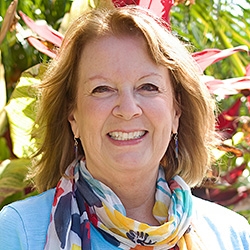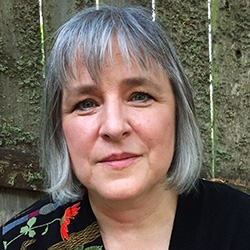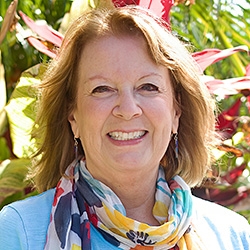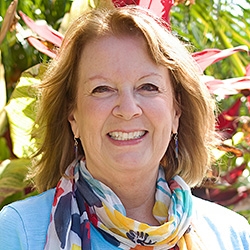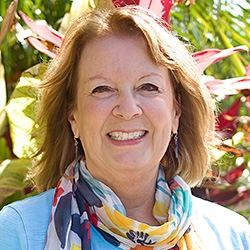

Search Results: stress
-
When conflict or criticism occurs, we can notice two layers of meaning to create connection: the content and the needs the speaker is holding. When we are able to recognize this --and ideally engage open-heartedly, with curiosity, make clear requests, imagining what they want, no matter how their expression was framed -- we have more opportunity to support the longevity of our relationships, and to decrease our loneliness when together.
-
If withdrawal is your stress pattern, you likely want to belong and yet have habits of expression that others find uninviting. Instead, soften, relax, and open your posture and energy. Find something that will bring you to smile. Engage with others -- make eye contact, smile, walk towards others, say hello, and sit in an open posture. Let others know that you're a bit overwhelmed, but want to connect and are glad to be here.
-
This chart helps translate words that imply blame into true feelings and unmet needs.
-
- Focus on living from the inside out
- Bring a field of inner kindness to your inner distress
- Attend to your inner experience with compassion
- Cultivate an inner spaciousness of freedom
-
-
When a person of color (A.K.A. a person from the Global Majority, or GM) tells a marginalization story that triggers a defensive response from a white participant in a group, to foster awareness and healing, leaders can address the white person's distress with empathy, highlighting the common dynamic of prioritizing white pain. From there, leaders can offer GM participants opportunity to share their experience and make requests of the group.
-
-
Jim and Jori offer a tip to stay present in the face of our reactivity to witnessed conflict.
-
- Move beyond anger, blame and judgment…
- Make sense of the baffling or offensive people in your life…
- Deepen your compassion for yourself and others… and
- Transform your old thought and speaking patterns into new ones that inspire harmony and fun!
-
So many of us have a habitual response of trying to eliminate uncertainty and the arrival of what we don't want. Alternatively, we can embrace the irreducible uncertainty of life. This shift from resistance and helplessness to mourning allows acceptance of outcomes, reduction of stress, and opens the door to noticing and appreciating what's present and available amidst challenges.
-
Learn the basics of NVC to reduce stress, improve connection and respond with clarity.
-
This anecdote illustrates how a young man had the social awareness to consider how male conditioning may bring up competitiveness in his interactions with another man. The young man offered transparency and checked for consent in a way that shows an embodiment of power-with, togetherness, consideration, care, collaboration... and all without displaying any formal NVC training, and without looking to impress.
-
- Look at your old patterns with warmth – while also opening yourself up to change.
- Increase your self-compassion – and gain a solid ground to stand on.
- Become intimate with your own survival strategies – and those of the people you love.
- Support healing and connecting in your long-term relationships – even when it seems there is no resolution in sight!
-
What happens when empathy isn't enough?When you and the people you love keep getting into the same argument again and again with no resolution or change, it can feel deeply distressing. It may even be challenging to hold on to hope. Realizing what trauma is – a phenomenon that affects us all – increases your self-compassion and gives you solid ground to stand on. Then, when you begin to integrate the tool of unconscious contract work, you can become intimate with your own survival strategies and those of the people you love.
-
Trainer tip: Read on for the three stages of emotional maturity. In the third stage, we integrate the first two stages. We come to realize that everyone is responsible for their own feelings, but we also recognize our role if we do something that stimulates pain in another person. We also start to value the needs of everyone, rather than just one party's needs over the other.
-
- Gain a deeper understanding of trauma through the lens of NVC
- Learn how to connect with ALL needs, even when we’ve been taught to suppress some of them
- Grow capacity to creatively move towards our deepest longings interdependently
- Discover how you can call people back to life when they are in the thick of patterned behavior
-
Experience a powerful blend of Nonviolent Communication and Emotionally Focused Couples Therapy.
-
Trainer Tip: Even if we don't agree, acknowledging others' realities can help demonstrate that we're including their feelings and needs in the conversation. Creating space for your reality and theirs can also bring a sense of connection, understanding, inclusion, abundance and fullness in life. Try it today. Read on for an example.
-
Trainer Tip: Every human being has the same universal needs -- even as each person may choose different strategies to meet those needs. Notice the universal needs you share with other people today.
-
- Discover how mediation is a fundamental social skill that everyone can learn
- Gain the skills to stay centered when a conflict becomes heated
- Learn how to lead a dialogue toward sustainable agreements
- Help facilitate connection and creativity to discover and meet everyone’s needs
Quick Links

Stay in Touch!
We value your privacy, won't share your email address and you can easily unsubscribe any time.








